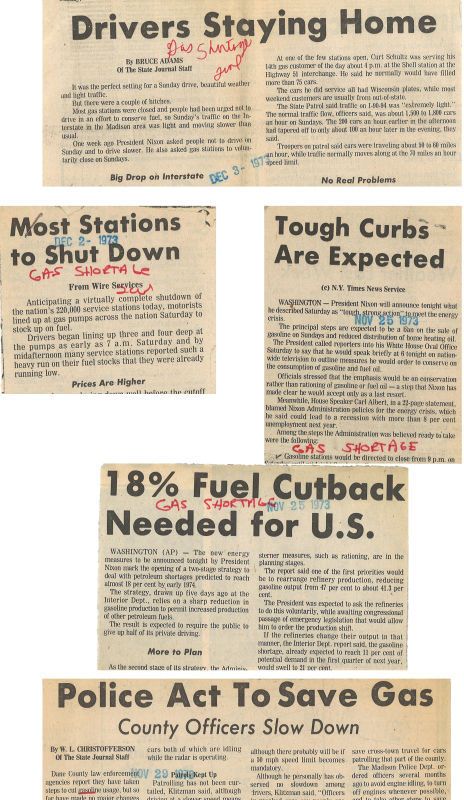GeographyDude
Gone Fishin'
Thesis:
The beginning of the '70s period of "blah" and diminished expectations started slowly over a matter of months from the Oct. '73 OPEC oil embargo and resulting price rises to the gas lines in late '73 and early '74.
"The '70s" ended abruptly with Reagan's optimism and good cheer following Hinckley's assassination attempt on March 30, 1981. That evening on the news and in the days following, it was widely reported that Ronnie had said to Nancy, "Honey, I forgot to duck," and that he had asked his aides, "Who's minding the store?" and that he had said to the doctors, "Please tell me you're all Republicans." And actually Dr. Joe Giordano, although a liberal Democrat, rose to meet the moment and said, "We're all Republicans today."
The feeling was that we were lucky to have a guy with this kind of optimism and can-do spirit.
The beginning of the '70s period of "blah" and diminished expectations started slowly over a matter of months from the Oct. '73 OPEC oil embargo and resulting price rises to the gas lines in late '73 and early '74.
"The '70s" ended abruptly with Reagan's optimism and good cheer following Hinckley's assassination attempt on March 30, 1981. That evening on the news and in the days following, it was widely reported that Ronnie had said to Nancy, "Honey, I forgot to duck," and that he had asked his aides, "Who's minding the store?" and that he had said to the doctors, "Please tell me you're all Republicans." And actually Dr. Joe Giordano, although a liberal Democrat, rose to meet the moment and said, "We're all Republicans today."
The feeling was that we were lucky to have a guy with this kind of optimism and can-do spirit.

